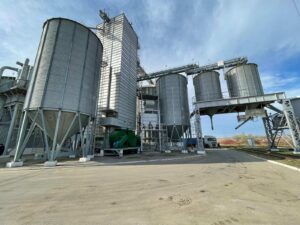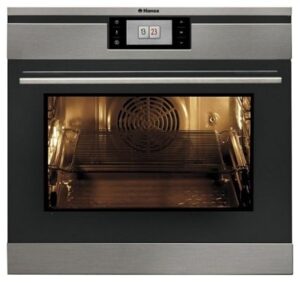
After two years of full-scale war, a majority of Ukrainian small and medium-sized enterprises (SMEs) surveyed for a study published by the European Bank for Reconstruction and Development (EBRD) have managed to stabilise their operations, demonstrating remarkable adaptivity to wartime conditions.
The survey indicates that 85 per cent of active enterprises are now fully operational and 14 per cent are partially operational, up from 57 per cent and 37 per cent, respectively, in the first year of the war.
Conducted in two stages, the research involved a qualitative survey (16 expert interviews) and quantitative representative research (150 telephone interviews) of SMEs in the production and service sectors across Ukraine, excluding the temporarily occupied regions. The results as at the end of April 2024 identify both positive and negative trends, key challenges and business needs. The research report is available here.
Donor funding for the survey was provided by Switzerland through the EBRD Small Business Impact Fund* and the European Union (EU) via the Women in Business programme.
Despite ongoing challenges, the share of SMEs reporting reduced profitability has halved, while the share expecting business to continue has increased. At the same time, one in five (19 per cent) SMEs reports higher profits on the year. Notably, the workforce reduction rate has decreased significantly, from 55 per cent to 34 per cent.
The survey also highlights that if the conflict persisted for another year or more, 64 per cent of SMEs would maintain current activity levels, while the proportion planning to diversify or expand has tripled to 12 per cent. Major issues identified include reduced demand, uncertainty in forecasting, increased costs and worker shortages.
The outlook if the war continues is quite diverse: 49 per cent of respondents believe that their business will remain unchanged in the near term, while 24 per cent expect a decline, 17 per cent expect growth and 2 per cent believe they will have to close. Nine per cent of company directors say they are unable to predict what will happen in future. Compared with last year, the share of positive forecasts has increased (up 11 per cent), while the share of those unable to make any forecasts has decreased (down 12 per cent).
Some of the war-caused negative trends include sales that are slow to rebound, a lack of workers due to conscription and migration, a lack of investment and increased competition from donor-funded non-governmental organisations.
The EBRD continues to support Ukrainian SMEs with development and financial assistance, through grants, relocation assistance, participation in international exhibitions, crisis-management advice, direct and indirect financing, and more. At the beginning of 2024, EBRD direct financing for SMEs and loans guaranteed through partner banks totalled about €450 million.
The Bank has made more than €4.5 billion available to Ukraine since the start of the war. EBRD shareholders recently agreed to a €4 billion paid-in capital increase to enable the Bank to continue investing at current levels in wartime, with the potential for more investments when reconstruction starts. Supporting the private sector is one of the EBRD’s strategic priorities in the country, along with maintaining energy security, vital infrastructure, food security and trade.
Donors that provided funding for the research in previous years include: the EU, the United States of America through the EBRD Small Business Impact Fund* and Sweden through the Women in Business programme.
*Donors to the EBRD Small Business Impact Fund include Italy, Ireland, South Korea, Luxembourg, Norway, the United States of America, Switzerland, Sweden, Japan and the TaiwanBusiness-EBRD Technical Cooperation Fund.
The EBRD is a multilateral bank that promotes the development of the private sector and entrepreneurial initiative in 36 economies across three continents. The Bank is owned by 73 countries as well as the EU and the EIB. EBRD investments are aimed at making the economies in its regions competitive, inclusive, well-governed, green, resilient and integrated. Follow us on the web, Facebook, LinkedIn, Instagram, X and YouTube.

The President of Uzbekistan visited the BYD Uzbekistan Factory in the Jizzakh region and signed the first cars that rolled off the assembly line.
This is the first stage of a $160 million project. The plant currently produces two models of the brand’s cars. Theannual production capacity of the first stage is50 thousand units.
Thesecond stage of the $300 million project is expected to increase production to 200 thousand electric vehicles per year (in 2027-2028), 350 thousand in 2028-2029, and the third stage of the $500 million project will increase productionto500 thousand electric vehicles (starting in 2030).
For reference: In January-May 2024, Uzbekistan produced a total of 162,608 units of cars. Source – UzAUTO.
The joint venture has been provided with modern industrial infrastructure and nearly 2 km of railway tracks have been laid. The plant has modern equipment and robotic systems from China. The production process is automated. A laboratory for high-precision inspection of the geometric dimensions of electric vehicles has been set up.
As the number of electric vehicles increases, the level of localization is expected to gradually increase. First of all, the production of bumpers, glass, lacquered and plastic parts will be launched. In the future, it is planned to produce batteries, electric motors, aluminum parts, tires and seats.
In the future, the plant plans to export electric vehicles to Kazakhstan, Kyrgyzstan, Turkmenistan, Afghanistan, and Azerbaijan.
BYD, CARS, PLANT, UZBEKISTAN

The National Police of Ukraine has announced a tender for the purchase of 30 specialized buses for a total of UAH 124.07 million by October 4 this year, according to the Prozorro electronic public procurement system.
According to the announcement of the open tender with specifics, bids are accepted until July 2, and the auction is scheduled for July 3.
The technical conditions of the tender provide for the supply of new (2024) intercity buses with soft seats, with at least 30 seats and at least three doors. The buses must be equipped with a diesel engine with a capacity of at least 4.5 liters and an environmental standard of at least Euro 5.
The bus must, in particular, have tinted windows in the passenger compartment, air conditioning and autonomous heating systems, a set of spare parts, a fire extinguisher, a first aid kit, and a blue beacon on the roof.
The warranty period is at least 2 years and/or 100 thousand kilometers.
The delivery period is up to 90 calendar days from the date of the contract conclusion or prepayment.
In particular, the participant must document the fact that in 2023 a similar contract (contracts) for the supply of at least 15 buses was executed.
The payment terms provide for payment upon delivery of the goods during the current budget period, or an advance payment of 45% of the cost of the goods, subject to justification of the need for an advance payment and its amount.
Structure of foreign exchange reserves as of 31.03.2024

Source: Open4Business.com.ua and experts.news

Continental Farmers Group has acquired a linear-type elevator complex in Lviv region to handle grains and oilseeds with a one-time storage capacity of 120 thousand tons, the company’s press service reported on Facebook on Tuesday.
According to the report, the acquired capacities consist of 77 thousand tons for storage in metal silos, and 43 thousand tons in prefabricated reinforced concrete silos and warehouses. This brings the total storage capacity of Continental to 634 thousand tons.
“Continental continues to implement its development strategy and invest in additional storage capacity, despite the difficult economic situation in the country (…) With the acquisition of this facility, we also have the opportunity to significantly optimize our logistics: the new elevator is located near a major railway junction and has the capacity to ship up to 45 rail cars of grain per day,” said Georg von Nolken, CEO of Continental Farmers Group, as quoted in the statement.
He also emphasized that the elevator complex is modern, multifunctional and fully automated, so the group did not incur extra costs for modernization or additional equipment, which is also important nowadays.
The agroholding noted that the expansion took place in a region that, given its large land bank, was not sufficiently covered by its own grain storage facilities: until now, only three small Continental drying and grain complexes with a total capacity of 31 thousand tons were operating in Lviv region.
“Continental Farmers Group owns elevator facilities in Ternopil and Ivano-Frankivsk regions. With the acquisition of the elevator in Lviv region, the agricultural holding will be able to provide third-party consignors with a range of services for grain acceptance, determine its quantity and quality, bring it to the condition and contractual indicators, store and ship it to road and rail transport.
Mriya Agro Holding and CFG, united under the name Continental Farmers Group, have been operating as a single business since November 2018, when Mriya entered into an agreement with international investor Salic UK to sell its assets.
Salic was founded in 2012. Its sole shareholder is the Saudi Arabian Public Investment Fund, which invests in agricultural and livestock production.

An electric oven is an indispensable assistant in the kitchen. It allows you to cook delicious dishes with minimal effort. However, sometimes the electric oven can suddenly stop turning on. In this article, we will look at five main reasons why this can happen, as well as mention the main manufacturers of electric ovens, so that you can better navigate the choice of appliances.
Top 5 reasons why an electric oven malfunctions
1. Problems with the power supply
One of the most common reasons why an electric oven may not turn on is a lack of power supply. Check to see if the appliance is plugged into an outlet and if the outlet itself is working. It may be worth checking the circuit breaker in the electrical box – it may have tripped due to a mains overload.
2. Faulty thermostat
The thermostat is responsible for maintaining the correct temperature in the oven. If it fails, the oven may not turn on at all. A faulty thermostat needs to be replaced, and it is better to entrust this work to a professional.
3. Problems with the controls
If the oven’s buttons or knobs don’t work, this could also be the cause of the malfunction. Try to gently press all the buttons and check if there is no mechanical damage. Sometimes the problem is solved by replacing or repairing the control panel.
4. Blown fuse
Inside the oven there may be a fuse that protects the appliance from overloads. If it is blown, the oven will not work. You can replace the fuse yourself, but if you are not confident in your abilities, it is better to contact a specialist.
5. Problems with the heating elements
Heating elements are an important part of an electric oven. If one of them burns out or fails, the oven may stop turning on. Checking and replacing heating elements requires certain skills and tools, so it is better to entrust this work to professionals.
Main manufacturers of electric ovens
There are many manufacturers of electric ovens on the market, offering a wide range of models with different functions and characteristics. Here are a few of them:
1. Bosch
A German brand known for its reliable and high-quality home appliances. Bosch electric ovens are characterized by durability and innovative technology.
2. Electrolux
A Swedish company offering functional and stylish electric ovens. Electrolux products are famous for their user-friendliness and modern design.
3. Siemens
Another German manufacturer known for its premium models of electric ovens. Siemens combines high technology and elegant design in its devices.
4. Samsung
A South Korean brand that offers a wide range of home appliances, including electric ovens. Samsung products are characterized by excellent value for money.
5. Gorenje
Slovenian manufacturer known for its high-quality and affordable models. Gorenje electric ovens are popular due to their reliability and functionality.
Conclusion
If your electric oven has stopped turning on, do not hurry to panic. Check the main causes of malfunction described in this article and try to solve the problem yourself. Help you to carry out repair of electric ovens in Kiev can be qualified specialists RemService company. Remember that proper care and regular maintenance will help to extend the life of your appliances and avoid unexpected breakdowns.